Antheraea platessa
|
|
Updated as per Die Saturniidae der Cameron- und Genting-Highlands in West Malaysia, Lampe, 1984; cynthia to kohlli; March 18, 2009
Updated as per Wolfgang Nassig: Saturniidae of Peninsular Malaysia with commentary on R. Lampe's 1984
Die Saturniidae der Cameron- and Genting-Highlands in West-Malaysia, March 18, 2009.
Updated as per personal communication with C W Gan, Frasers Hill, Pahang, Malaysia, March 18, 2009
Updated as per personal communication with Dave Rolfe (Bukit Pagon, Brunei, male: 132mm; 1670m, February); April 2009
Updated as per Heterocera Sumatrana Volume 10, 1996, Nassig, Lampe and Kager; April 2009
Updated as per Moths of Thailand Vol. One Saturniidae, 1990, Pinratana and Lampe; (in error as jana); April 2009
|
Antheraea platessa
Rothschild, 1903
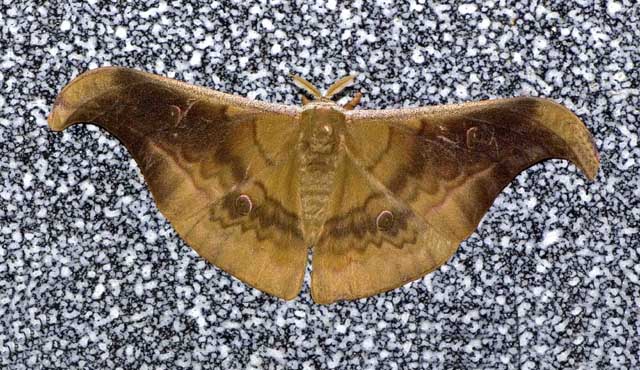
Antheraea platessa male, Frasers Hill, Malaysia,
courtesy/copyright
Preston Murphy.
TAXONOMY:
Superfamily: Bombycoidea, Latreille, 1802
Family: Saturniidae, Boisduval, [1837] 1834
Subfamily: Saturniinae, Boisduval, [1837] 1834
Tribe: Saturniini, Boisduval, [1837] 1834
Genus: Antheraea, Hubner, 1819
|
MIDI MUSIC
"Eyes for You"
copyright C. Odenkirk
MIDI CITY
ON.OFF
<bgsound src="eyes4u.mid" LOOP=FOREVER>
|
DISTRIBUTION:
The Antheraea platessa moth
(wingspan: males 120-132mm: females: 135-160mm)
flies in
Burma = Myanmar;
southern Thailand: Kanchanaburi, Nakhon, Nayok:
Malaysia: Pahang, probably elsewhere;
Borneo;
Brunei: Bukit Pagon, 1670m;
Sulawesi;
Sumatra: Ketambe 400m, Aek Tarum, Sundar Raya 300m, Prapat, Brastagi 1500m,
Huta Padang, Lampung;
China: Yunnan, at elevations from sea level to 1800m.
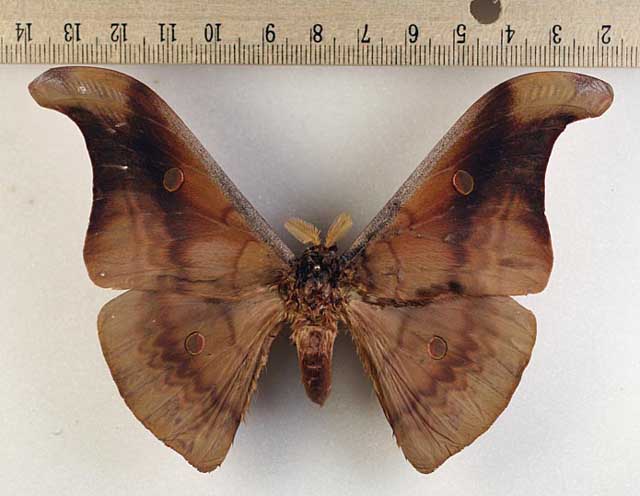
Antheraea platessa male, Pahang, Malaysia,
courtesy of Kelly Price, id by Bill Oehlke.
Stefan Naumann writes, "Antheraea pernyi
yunnanensis was synonymized with platessa by Pauksatdt,
Paukstadt, & Naumann 2000, but shortly later cited as
Antheraea (Antheraeopsis) yunnanensis by Paukstadt, Brosch, &
Paukstadt, 2000 due to the mixed-up genitalia figure of Zhu & Wang
1996. The holotype of yunnanensis is clearly platessa, thereby
the citation in the second publication is wrong."
Male A. platessa have a strongly developed dark medial band, often obscuring/blending with the dark
outer half of the forewing ocellus. There is contrasting yellowish-green to light brown apical area.
The outer margin is deeply concave and the terminal area is especially dark in its middle half.
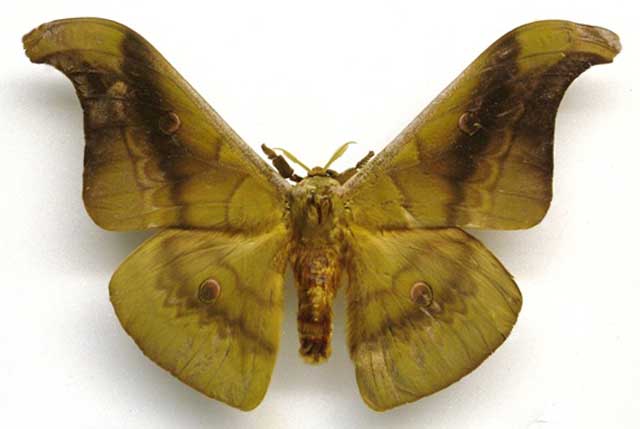
Antheraea platessa male, 132mm, Bukit Pagon, Brunei,
February 1982, 1670m, courtesy of Dave Rolfe, digital repair to fw apices by Bill Oehlke.
Based on commentary by Wolfgang Nassig the male (1) and female (2) Plate 6 in Die Saturniidae der Cameron- und Genting-Highlands in West Malaysia,
Lampe, 1984, are Anthereaea platessa platessa, not as labelled as A. jana fusca.
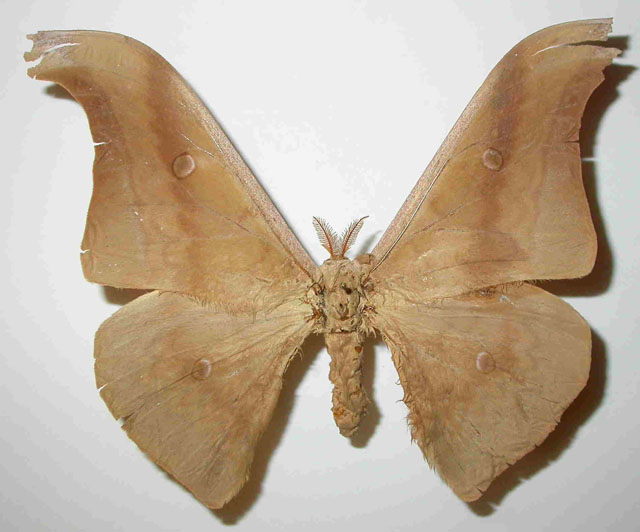
Antheraea platessa, Yunnan, China, courtesy of
Stefan Naumann
FLIGHT TIMES AND PREFERRED FOOD PLANTS:
Teemu Klemetti offers the following regarding
flight on peninsular Malaysia: "Antheraeas flew for the whole period
8th of March-26th of May.
They may have peaks March-May and October-December
- males 1:00-5:00 am, females 8:00pm (rosieri) or midnight
(youngi, ulrichbroschi)."
Dave Rolfe reports a February flight in Brunei.
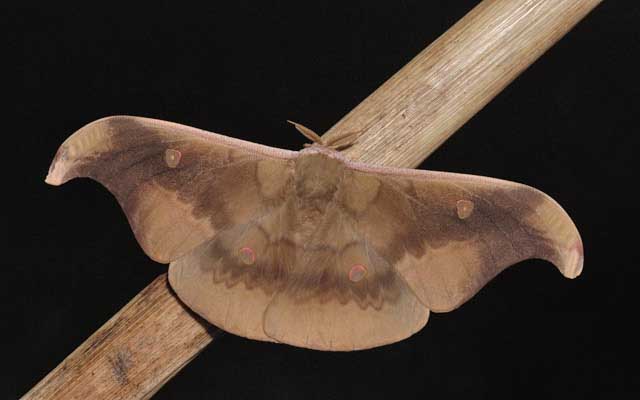
Antheraea platessa platessa male, Frasers Hill, Pahang, Malaysia,
April 2008,
courtesy/copyright C. W. Gan.
R. Lampe indicates a November flight in Tapah Hills Nature Reserve, Cameron-Highlands, Malaysia (900m), and a July-August flight in Kampong Sahom, Malaysia (1500m).
Specimens have also been taken in April, so it appears there are at least three broods on peninsular Malaysia
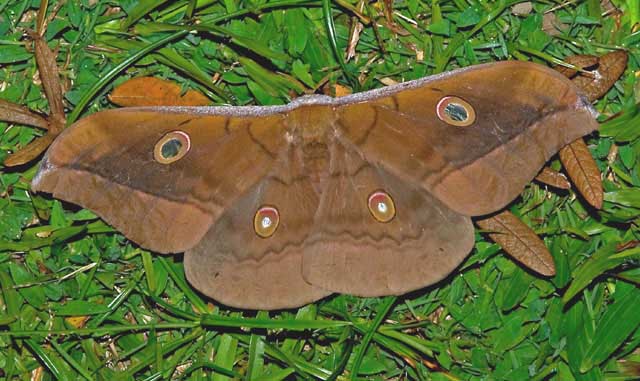
Antheraea platessa female, Frasers Hill, Malaysia,
August 2004,
courtesy/copyright
Preston Murphy, slight digital
wing repair by Bill Oehlke.
ECLOSION, SCENTING AND MATING:
Males use highly developed antennae to detect female scent which is distributed into the wind. Males fly into the wind in a zigzag pattern to detect
the pheromone and subsequently locate the female.
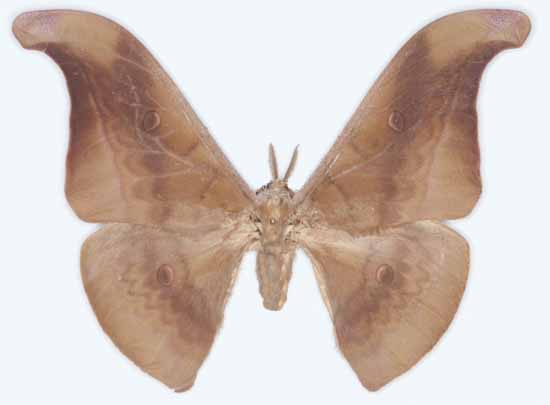
Antheraea platessa
male, South Sulawesi, Bantimurung, 50 m
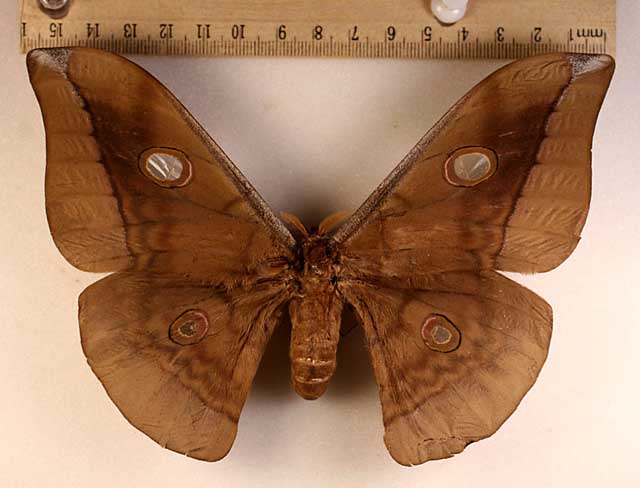
Antheraea platessa female, Cameron Highlands, Pahang,
Malaysia,
courtesy/copyright
Kelly Price, id by Stefan Naumann.
EGGS, LARVAE, COCOONS AND PUPAE:
Antheraea platessa larvae are quite similar to all
other species of the frithi-subgroup, but show distinctive dichromatic dorsal scoli on meso- and
metathorax in last instar.
Larval Food Plants
It is hoped that this alphabetical listing followed by the common
name of the foodplant will prove useful. The list is not exhaustive.
Experimenting with closely related foodplants is worthwhile.
Use your browser "Back" button to return to the previous page.
Return to Antheraea Genus
Goto Asian Pacific Saturniidae Directory
Goto Indo East European Saturniidae Directory
Goto Main Saturniidae Index
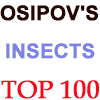
| 
Support this website and visit other insect sites by
clicking flashing butterfly links to left or right.
|

|











